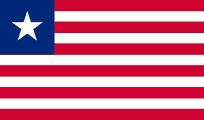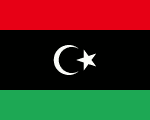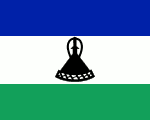Liberia is a West African country that has a rich and diverse history, culture, and natural beauty. It is the oldest republic in Africa and the only one that was never colonized by a European power. In this blog post, I will share some facts and insights about Liberia, its people, its challenges, and its opportunities.
Liberia’s name means “land of the free” in Latin. It was founded in 1822 by the American Colonization Society (ACS), an organization that sought to resettle freed and free-born African Americans in Africa. The ACS believed that black people would face better chances for freedom and prosperity in Africa than in the United States, where they faced discrimination and oppression. Between 1822 and 1861, more than 15,000 African Americans and Afro-Caribbeans migrated to Liberia, where they established a government modeled after the US constitution. They declared independence in 1847, making Liberia the first African republic to do so. The US did not recognize Liberia’s sovereignty until 1862.
The settlers, known as Americo-Liberians, brought with them their culture and traditions, which influenced Liberia’s language, religion, education, and politics. They also dominated the country’s economy and society for more than a century, often marginalizing the indigenous ethnic groups that inhabited the land before them. Liberia has 28 ethnic groups and languages, reflecting its diversity and complexity. The largest ethnic groups are the Kpelle, Bassa, Grebo, Dan, Mano, Kru, Lorma, Kissi, Gola, Krahn, Vai, Mandinka, Gbandi, Mende, Sapo, Belle, and Dey. The official language is English, but many people also speak pidgin English or local languages.
Liberia’s history has been marked by periods of peace and prosperity as well as violence and instability. In the late 19th and early 20th centuries, Liberia faced external threats from European colonial powers that wanted to annex its territory or exploit its resources. Liberia resisted these attempts and maintained its sovereignty with the help of the US and other allies. Liberia also played an active role in regional and international affairs, becoming a founding member of the League of Nations, the United Nations, the Organization of African Unity (now the African Union), and the Economic Community of West African States (ECOWAS).
In the mid-20th century, Liberia experienced economic growth and social development under the leadership of President William Tubman (1944-1971), who promoted foreign investment, infrastructure development, education, health care, and national unity. Tubman’s successor, William Tolbert (1971-1980), continued his policies but also faced growing discontent from the indigenous population and the urban poor who demanded more political participation and economic opportunities. In 1980, Tolbert was overthrown and killed in a military coup led by Master Sergeant Samuel Doe (1980-1990), who became the first indigenous president of Liberia.
Doe’s regime was characterized by corruption, repression, human rights violations, and ethnic favoritism. His rule sparked a civil war that lasted from 1989 to 1997 and claimed more than 200,000 lives. The war was fought by various rebel factions that sought to overthrow Doe or control parts of the country. The most prominent rebel leaders were Charles Taylor (1989-1997; 1997-2003), Prince Johnson (1989-1990), Alhaji Kromah (1991-1997), George Boley (1991-1997), Roosevelt Johnson (1994-1996), Sekou Conneh (2003), and Sekou Damate Konneh (2003-2005). The war also involved foreign intervention from neighboring countries such as Guinea, Sierra Leone, Nigeria, Ghana.








